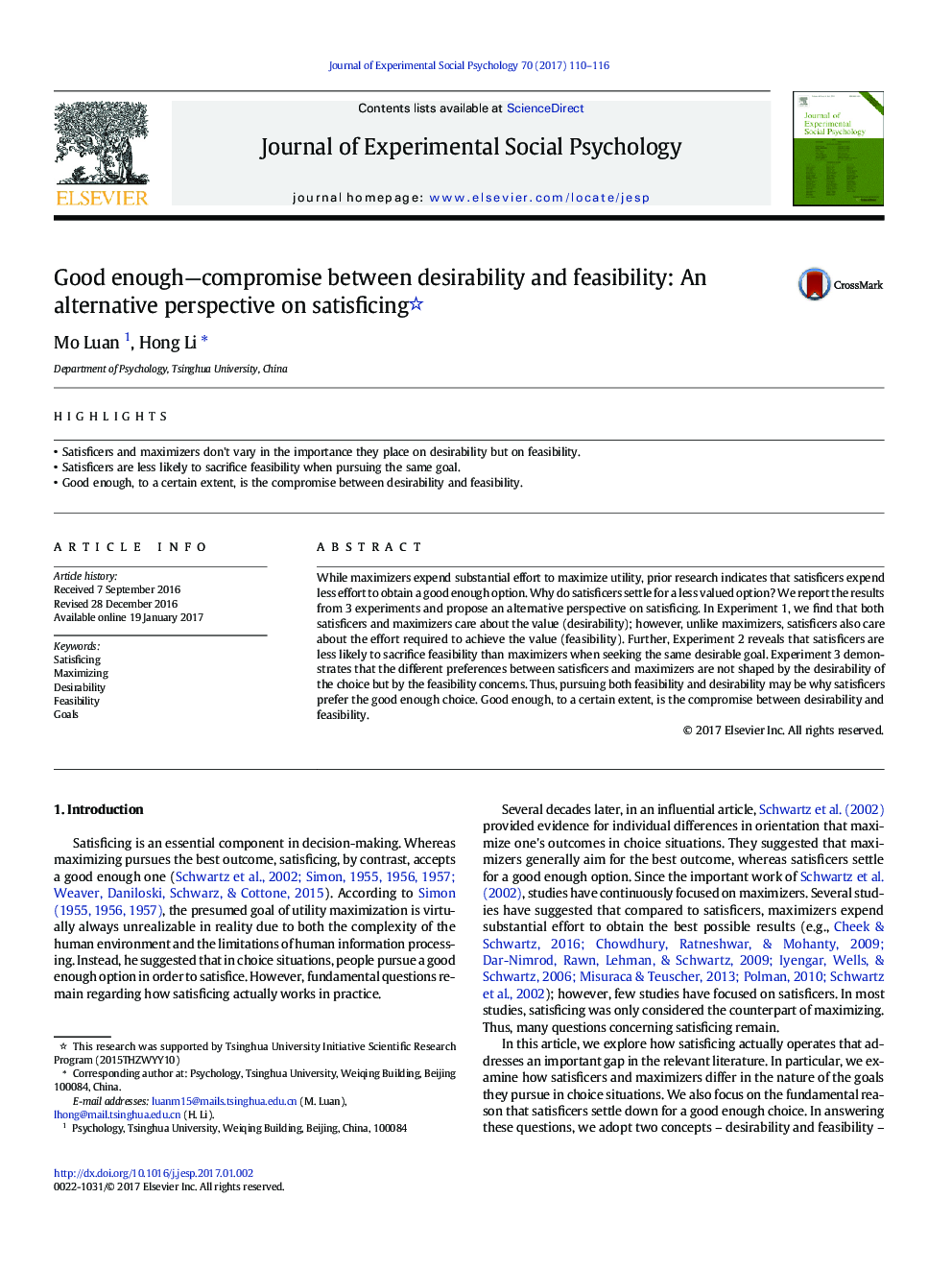| Article ID | Journal | Published Year | Pages | File Type |
|---|---|---|---|---|
| 5045636 | Journal of Experimental Social Psychology | 2017 | 7 Pages |
â¢Satisficers and maximizers don't vary in the importance they place on desirability but on feasibility.â¢Satisficers are less likely to sacrifice feasibility when pursuing the same goal.â¢Good enough, to a certain extent, is the compromise between desirability and feasibility.
While maximizers expend substantial effort to maximize utility, prior research indicates that satisficers expend less effort to obtain a good enough option. Why do satisficers settle for a less valued option? We report the results from 3 experiments and propose an alternative perspective on satisficing. In Experiment 1, we find that both satisficers and maximizers care about the value (desirability); however, unlike maximizers, satisficers also care about the effort required to achieve the value (feasibility). Further, Experiment 2 reveals that satisficers are less likely to sacrifice feasibility than maximizers when seeking the same desirable goal. Experiment 3 demonstrates that the different preferences between satisficers and maximizers are not shaped by the desirability of the choice but by the feasibility concerns. Thus, pursuing both feasibility and desirability may be why satisficers prefer the good enough choice. Good enough, to a certain extent, is the compromise between desirability and feasibility.
